Your support helps us to tell the story
This election is still a dead heat, according to most polls. In a fight with such wafer-thin margins, we need reporters on the ground talking to the people Trump and Harris are courting. Your support allows us to keep sending journalists to the story.
The Independent is trusted by 27 million Americans from across the entire political spectrum every month. Unlike many other quality news outlets, we choose not to lock you out of our reporting and analysis with paywalls. But quality journalism must still be paid for.
Help us keep bring these critical stories to light. Your support makes all the difference.
Twenty-four hostages have been released after seven weeks held captive inside Gaza on the first day of a temporary truce between Israel and Hamas.
It was a moment of joy after weeks of worry for some of the families of the 240 people kidnapped by the militant group during the 7 October attack on Israel when 1,200 people were killed. In exchange for the 13 Israelis freed – nine women and four children under 10 – Israel released 39 Palestinians, also a mix of women and minors, imprisoned in Israel’s jails as part of the four-day ceasefire deal. Ten Thai nationals and one Filipino were also freed by Hamas outside of that deal.
If the releases were a dramatic landmark moment, Gaza residents shared their relief at a period of “calmness”, saying families used the rare pause to gather supplies, find family members and bury their dead after ferocious Israeli bombardment in the wake of the Hamas attack.
Israel’s heaviest ever airstrikes have been backed up by military ground offensives in the last few weeks and a crippling blockade that has left food, water and medical supplies all running short. Health officials in Hamas-controlled Gaza said Israel’s bombardment has killed more than 13,000 people, including thousands of children.
After weeks of tense negotiations mediated by Qatar and with help from the US, the ceasefire finally started on Friday morning, and has held so far.
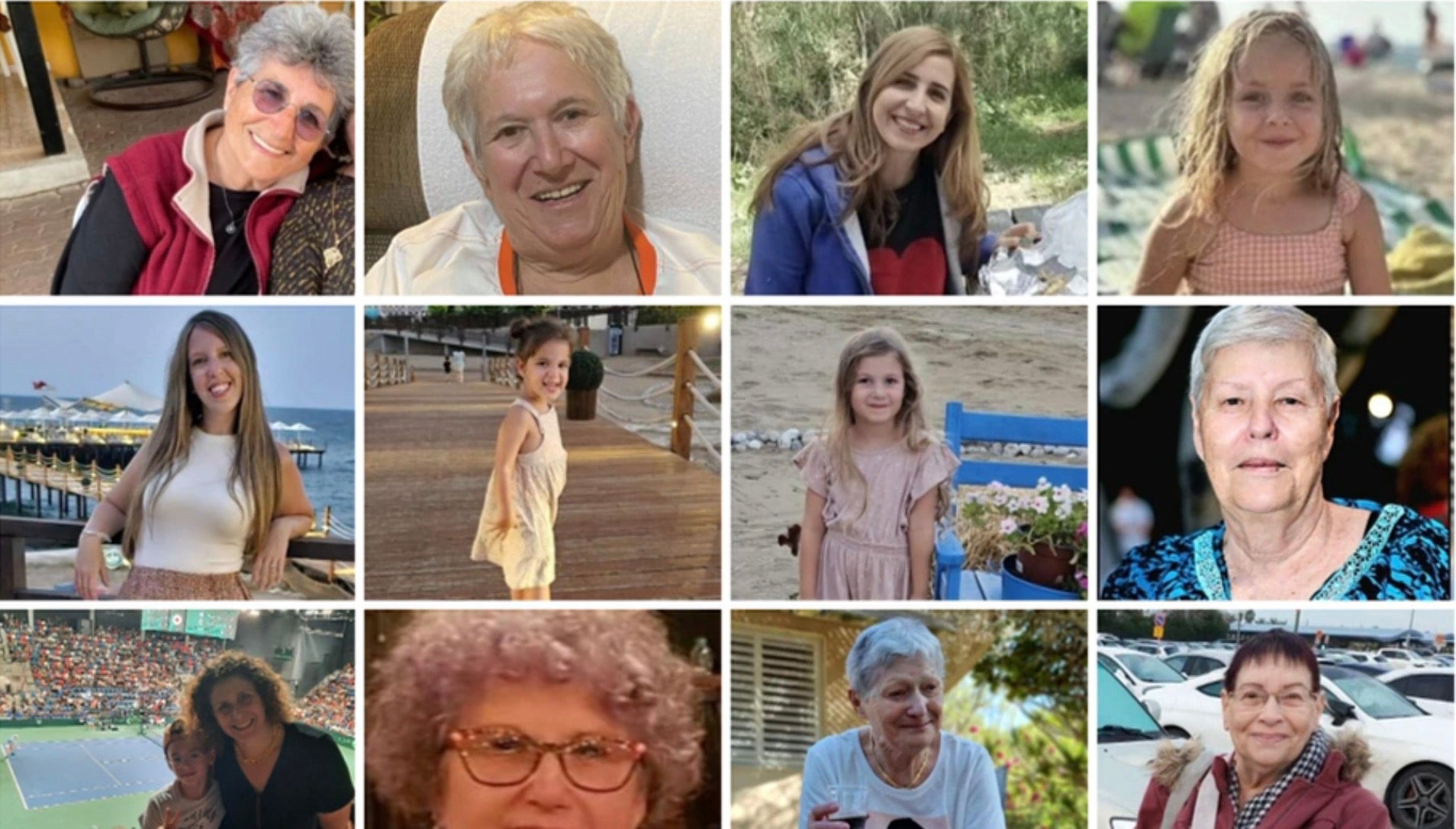
What followed was hours of nervous waiting until the hostages finally crossed into Israel on Friday evening. The hostages were transferred out of Gaza and handed over to Egyptian authorities at Rafah border crossing, accompanied by staff from the International Committee of the Red Cross (ICRC) in a four-car convoy.
“We have just completed the return of the first batch of our hostages. Children, their mothers and other women. Each and every one of them is a world in itself,” said Israeli prime minister Benjamin Netanyahu. “But I stress to you, the families, and to you, citizens of Israel: we are committed to returning all our hostages.”
US President Joe Biden said the hostage release was the “start of a process”. “We expect more hostages to be released tomorrow. And more the day after, and more the day after that,” he added.
After a medical check, the Israeli hostages, four children accompanied by four family members, and five other elderly women, were to be reunited with their families at various hospitals.
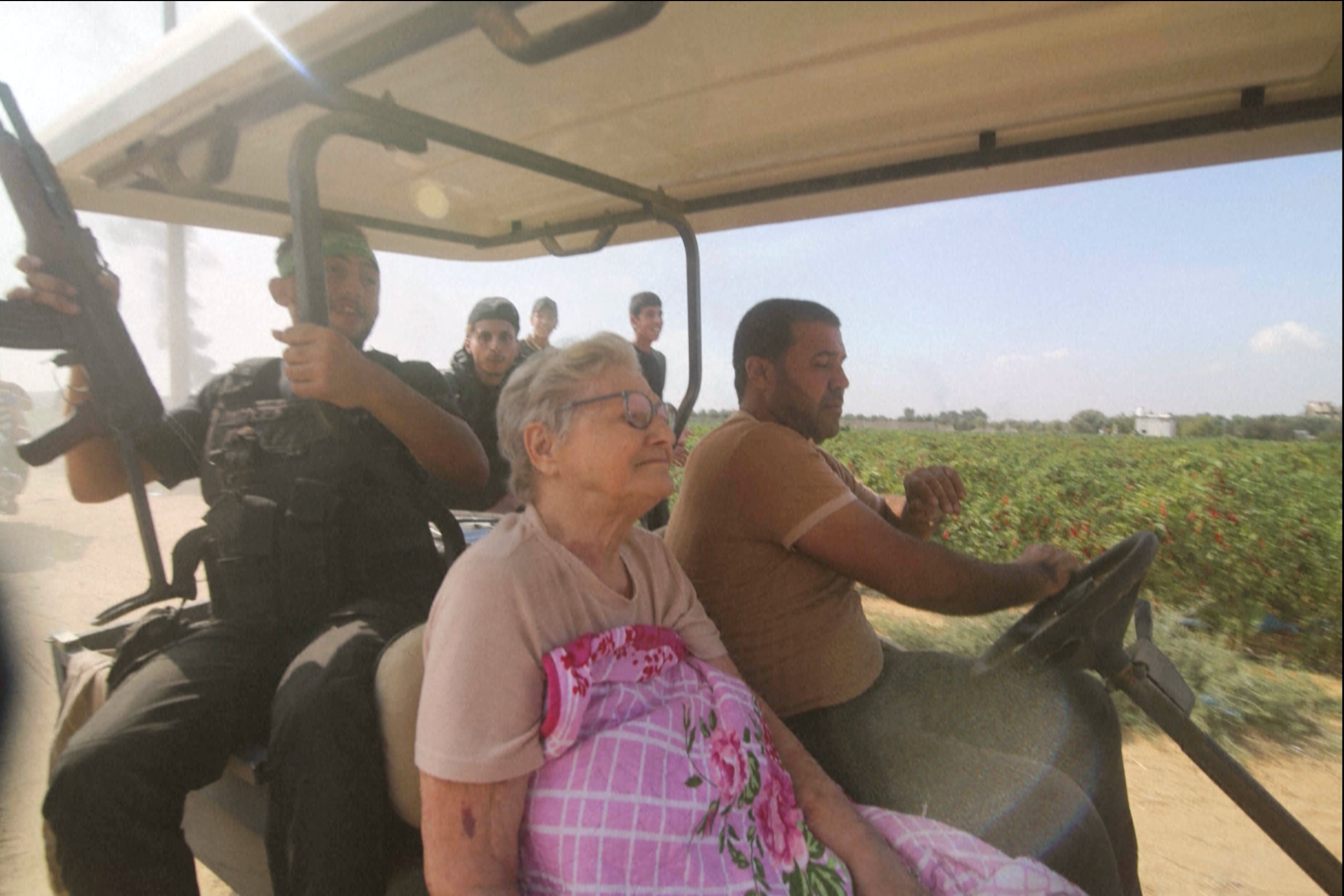
The full list of hostages was the Asher family: Doron Katz Asher (34 years old), Raz Asher (age four) and Aviv Asher (two years old); the Aloni family: Daniele Aloni (45 years old) and Emilia Aloni (age five); the Munder family: Ruth Munder (age 78), Keren Munder (54 years old) and Ohad Munder (age nine); and Adina Moshe (age 72), Hanna Katzir (age 76), Margalit Mozes (age 77), Channah Peri (age 79) and Yaffa Adar (85 years old).
Many around the world came to know of Ms Adar, the oldest of the released hostages, in the aftermath of the 7 October attack. A video of her riding in the back of a golf cart driven by armed Hamas fighters, smiling broadly in the face of a terrifying ordeal, became one of the defining images of that day.
“She’s putting on a brave face, taking charge of the situation and showing her captors a glimpse of the unbreakable resolve we all know her to have,” her granddaughter, Adva Adar told The Times of Israel at the time.
Yoni Katz Asher, whose wife Doron and daughters Raz and Aviv returned this evening after 49 days in captivity in Gaza, said on Friday evening that he would do “everything to ensure the last hostage returns home safely.”
“I am happy that I received my family back, it’s allowed to feel joy and it’s allowed to shed a tear. That’s a human thing. But I am not celebrating, I will not celebrate until the last of the hostages returns home,” he said.
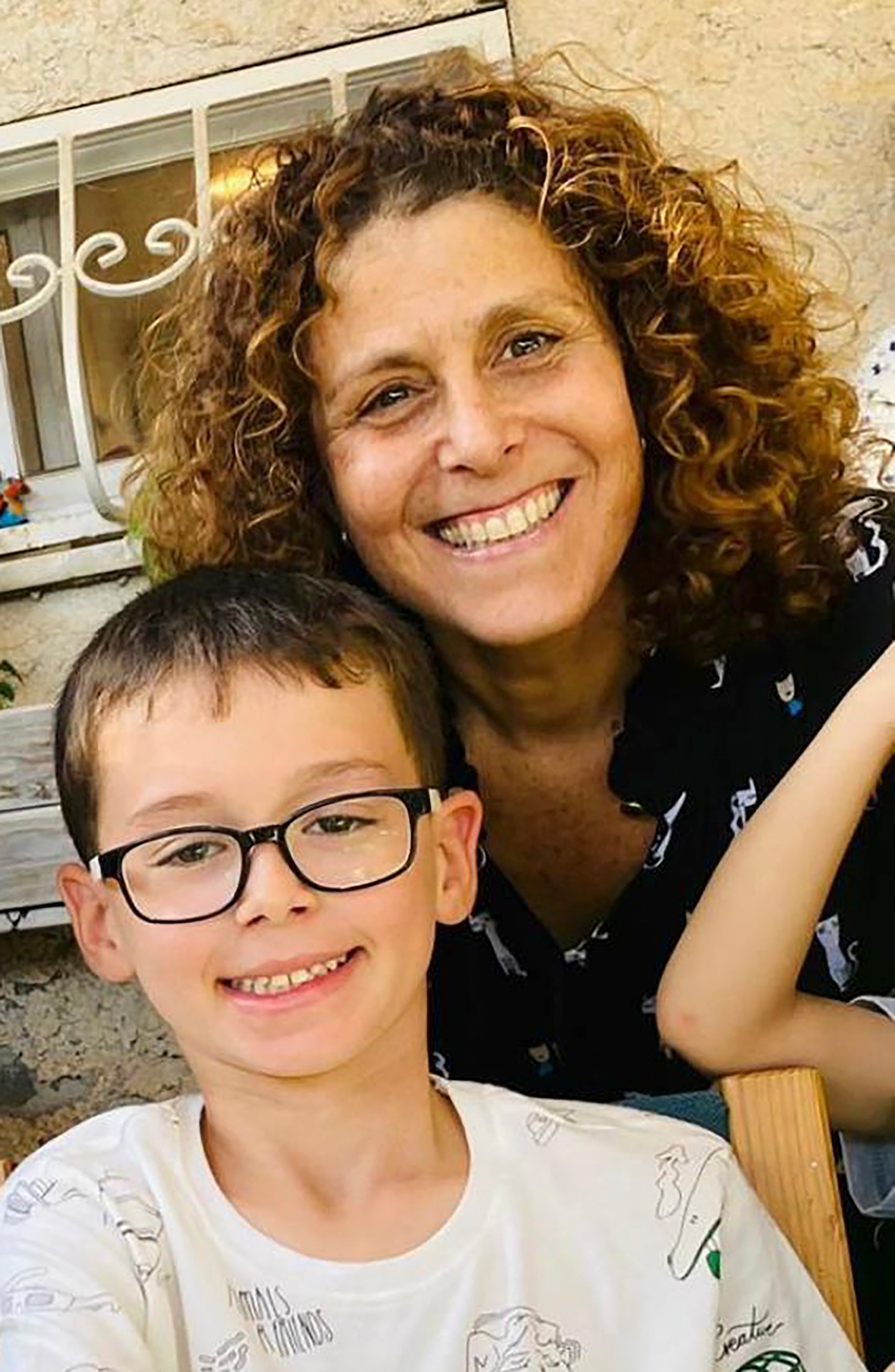
Corinne Moshe, daughter-in-law of 72-year-old Adina Moshe, said her husband and his siblings were waiting at a hospital to be reunited with their mother. “I miss her very, very much, I want her to be back already. I want to have dinner with her and the entire family again,” she told Reuters. “Grandmother is a strong woman.”
The Red Cross also facilitated the release of 39 Palestinians – 24 women and 15 teenagers – most of whom were transported from Israel’s Ofer prison. Tensions soared as people gathered to welcome the freed detainees. Sky News shared footage showing Israeli forces firing tear gas at the crowds.
Later there were emotional scenes shared on social media showing detainees reunited with their families in the occupied West Bank and celebrations in the streets. One woman told Al Jazeera Arabic that she had not known she was going to be released until the last minute and that her mother found out from social media.
Under the terms of the four-day Israel-Hamas truce, 50 women and children hostages are to be released over four days, in return for 150 Palestinian women and children among thousands of detainees in Israeli jails – where rights groups say many are held in administrative detentions and so without charge or trial. Israel says the truce could be extended if more hostages are released at a rate of 10 per day – which in turn would see more Palestinians released.
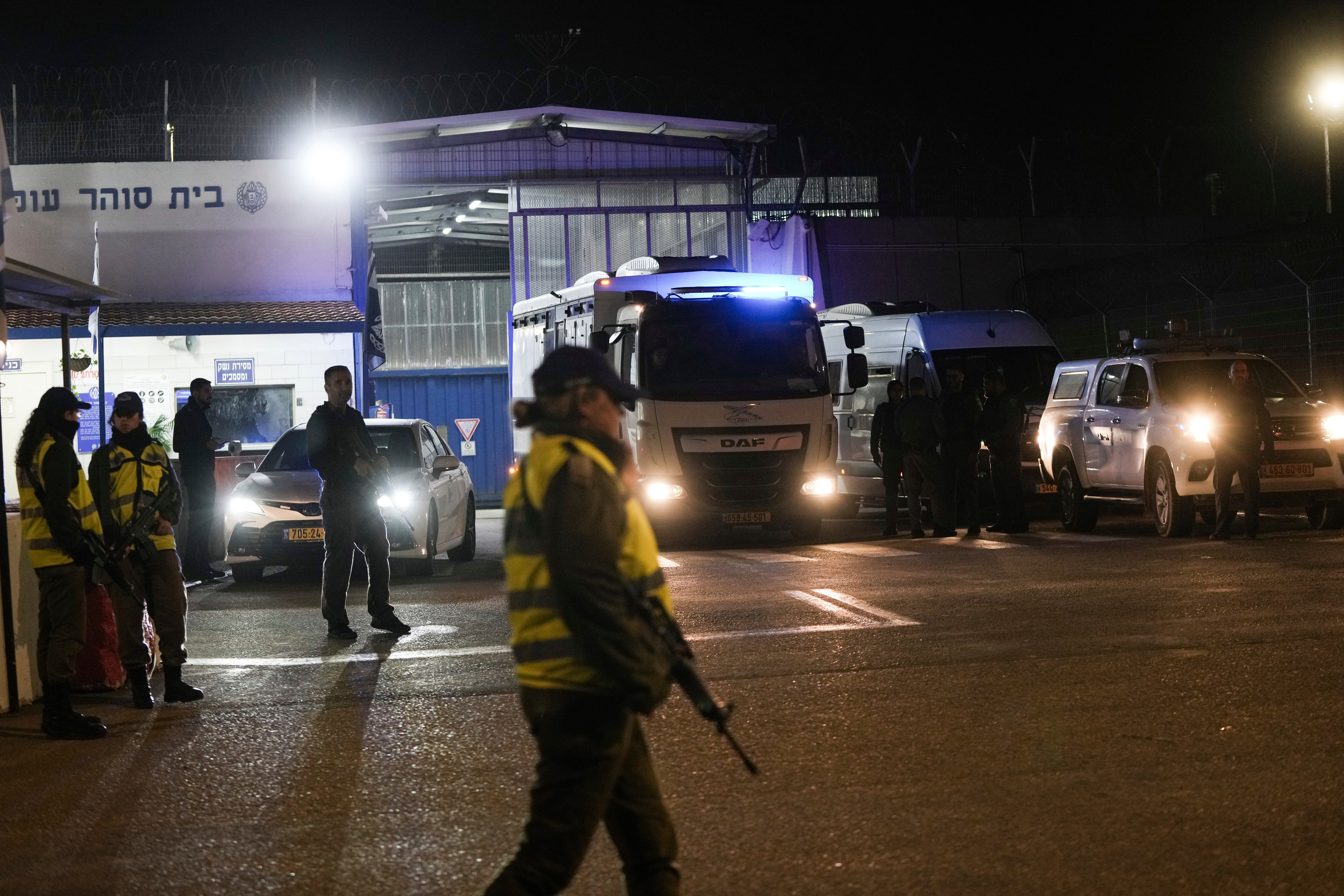
The families of some of the hostages not in this initial release told The Independent about the tense moment they were called on Thursday evening by designated officers in the Israeli military about whether their loved ones would be on the list.
“We never imagined in the world we would have to go through this,” said Gill Dickmann, whose cousin Carmel, 39, was abducted from Kibbutz Beeri but was not on Friday’s list despite being eligible as a woman. He told The Independent he hoped she might be included in the lists in the coming days – particularly if the ceasefire is extended and more hostages are released.
“It’s extremely stressful and we guess we will get these calls everyday day – again and again,” he said.
“It’s even more stressful for those with young children held in Gaza – for every day they don’t get the message saying their children are among the hostages being released, it opens a very large question about whether they are still alive or not.”
One of Mr Dickmann’s friends was among those whose relatives were going to be released – he didn’t want to give their details to protect the privacy of the family but said the man “cried all day when he heard”.
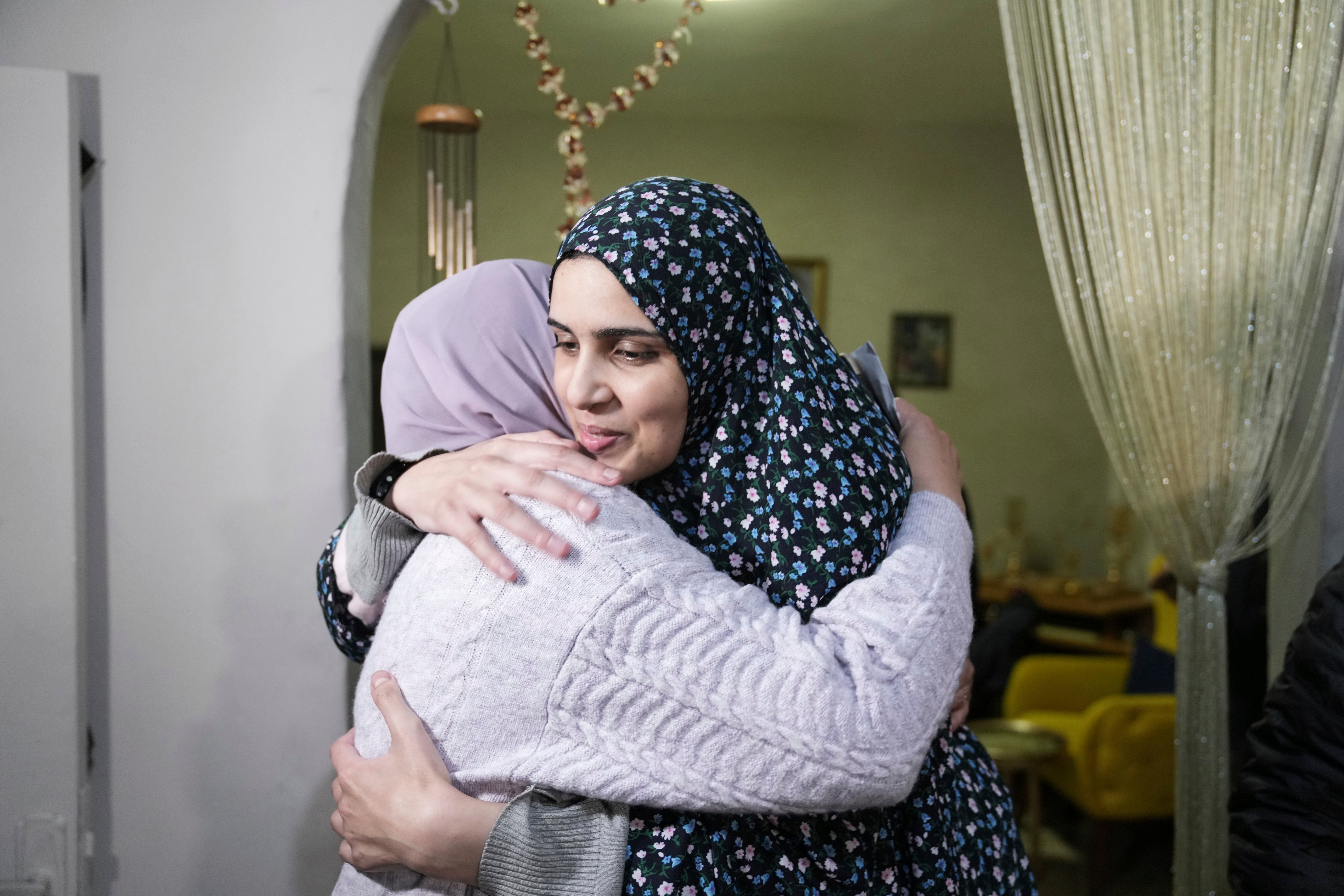
Nadav Rudaeff, whose 61-year-old infirm father Lori is a captive, said they hoped that this deal was the start of many more. Lori is not eligible for the initial releases, but he has a serious heart condition and needs daily medicine and blood thinners. Nadav said he only knows his father is in Gaza because his mobile phone was geolocated there – but he does not know if he is still alive.
“Because it is ‘a’ deal does not make it ‘the’ deal, the hope is always there,” he said, clutching a photo of his father.
Inside Gaza, people emerged from their homes during the ceasefire to collect belongings. There were moments of levity among the carnage, with children making the most of the sky being free of fighter jets.
Sara, 21, a Palestinian student who has lost dozens of family members and friends in the bombings and has been displaced three times in war, said that her parents left on foot to try to work out the fate of relatives in another southern town that they had lost contact with.
“I know this temporary ceasefire will never bring back my beloved ones but I hope this will be the first and the last ceasefire and forever,” she said, saying that the last seven weeks had been a nightmare.

“The pause has brought us back to life. I can’t describe the calmness around the streets, there is no sound of airstrikes, no sound of bombing.”
More aid was also part of the truce deal and the UN humanitarian office (OCHA) said 137 trucks of goods were offloaded inside Gaza on Friday – the biggest humanitarian convoy received since the war began.
The OCHA added that 129,000 litres of fuel and four trucks carrying gas also crossed into Gaza. The Israeli military said two tankers of fuel and two tankers of cooking oil crossed in the morning.
Hundreds of thousands of Gaza’s 2.3 million people have fled their homes, with Israel calling on them to move southwards.
Sara told The Independent it was too dangerous to go back to Gaza City to check on their family home – and they had been told those who had tried to go back to the north of Gaza had come under fire from Israeli forces. The Independent asked the military about the reports and was told: “The IDF is stationed along the designated operational lines of the pause in accordance with the provisions of the agreed upon framework.”
Israel has made clear that its aim is to destroy Hamas. The country’s defence minister, Yoav Gallant, said: “This will be a short pause, at the conclusion of which the war [and] fighting will continue with great might and will generate pressure for the return of more hostages.”
Subscribe to Independent Premium to bookmark this article
Want to bookmark your favourite articles and stories to read or reference later? Start your Independent Premium subscription today.

Join our commenting forum
Join thought-provoking conversations, follow other Independent readers and see their replies
Comments